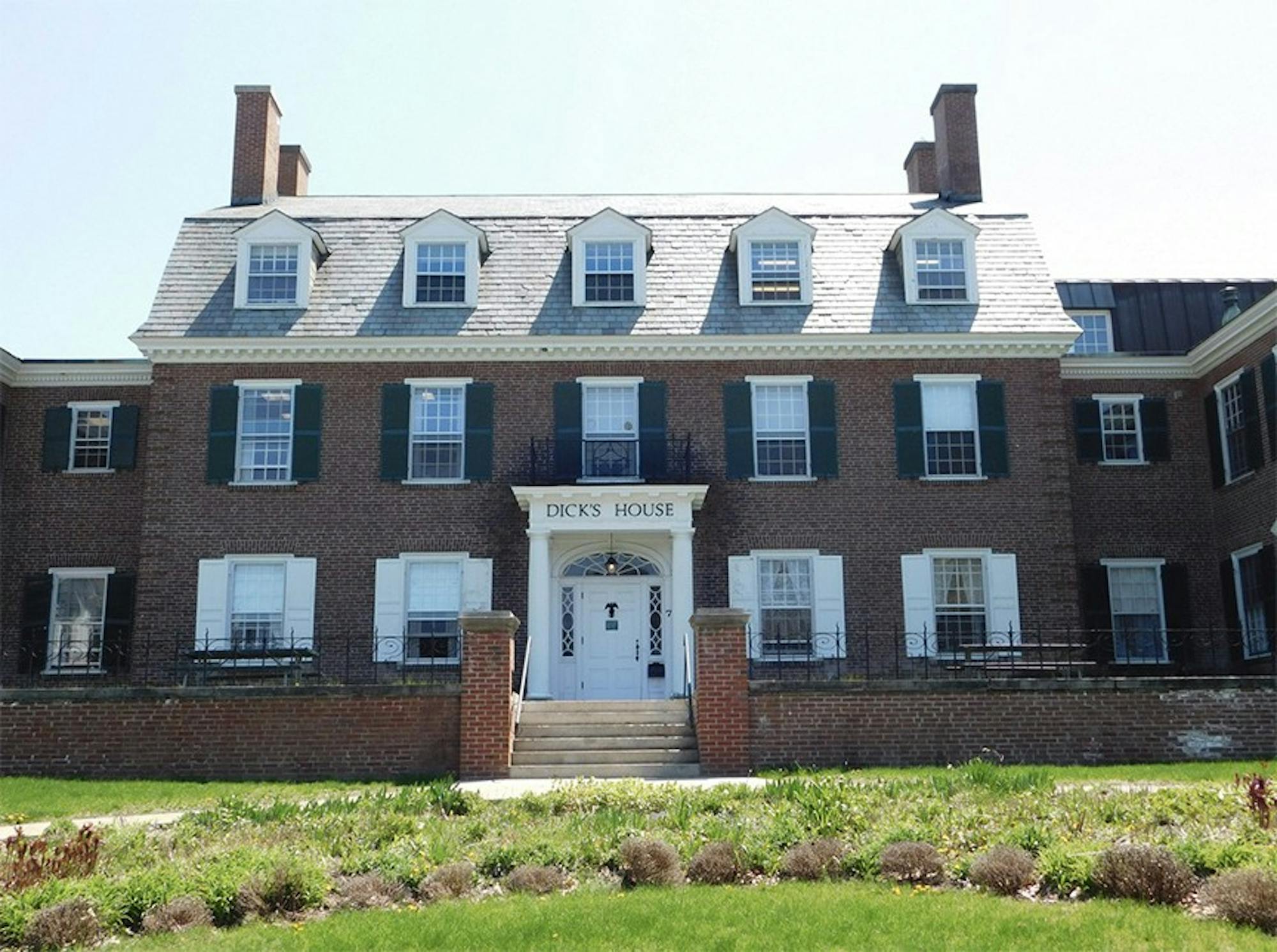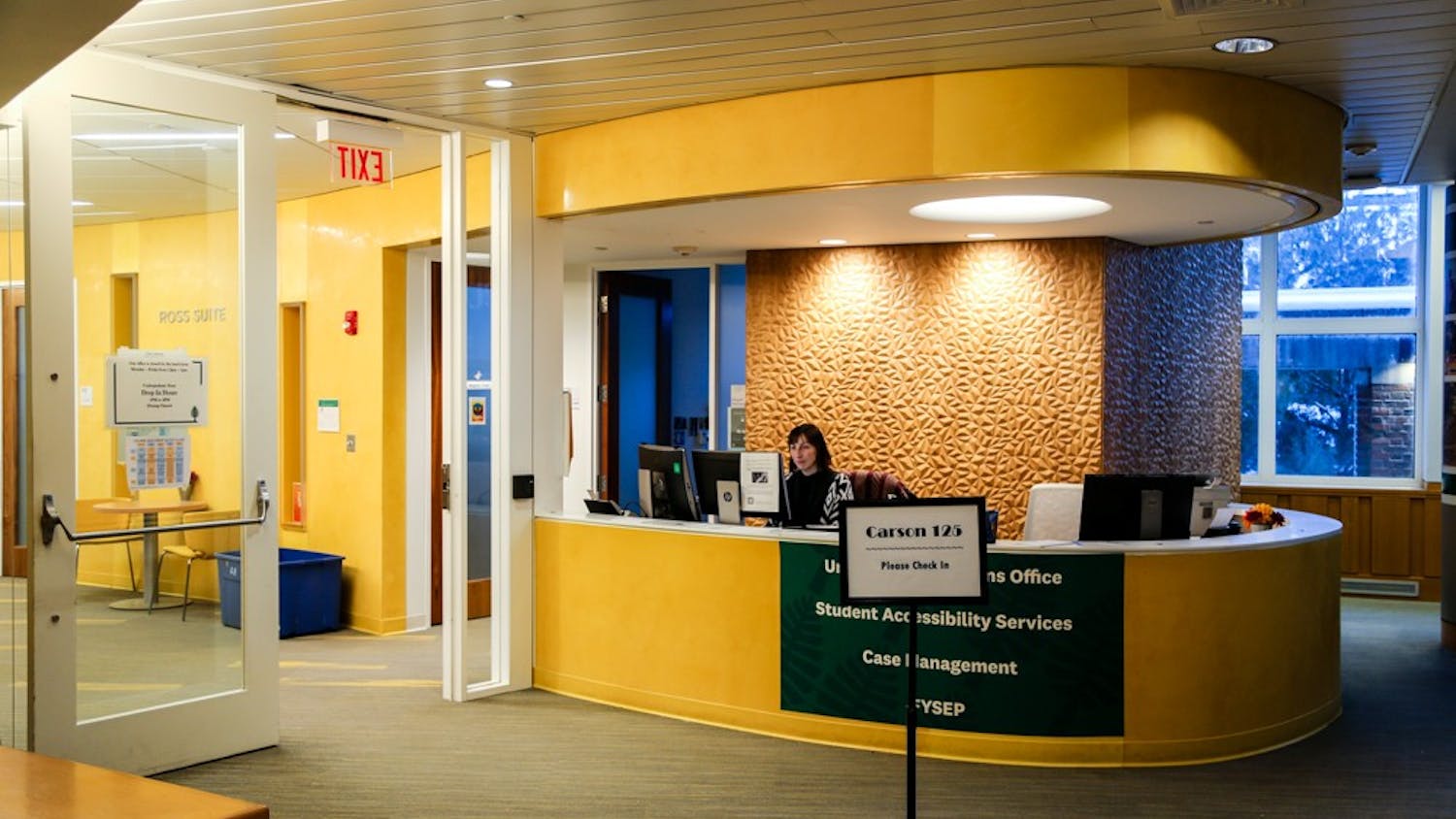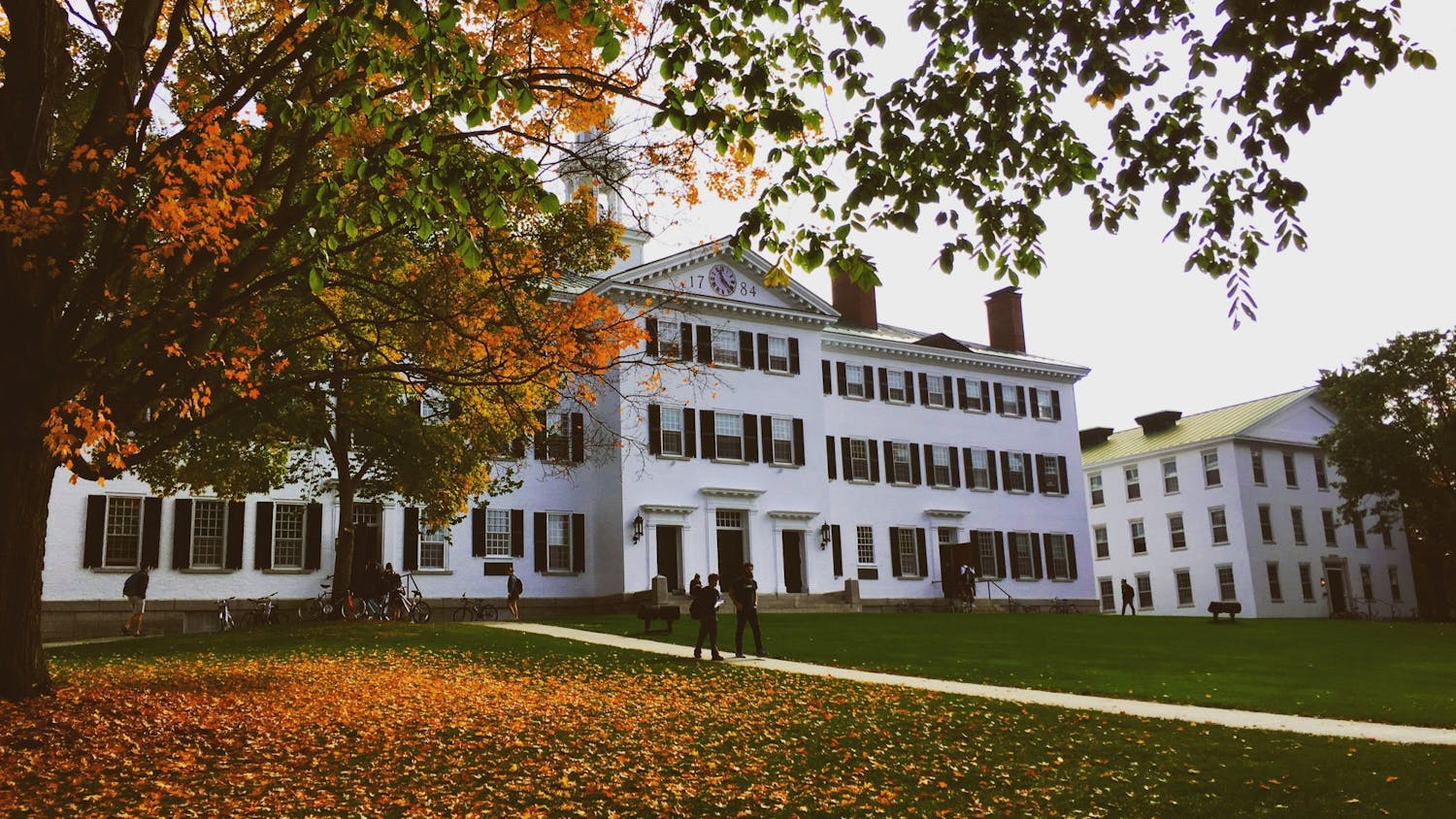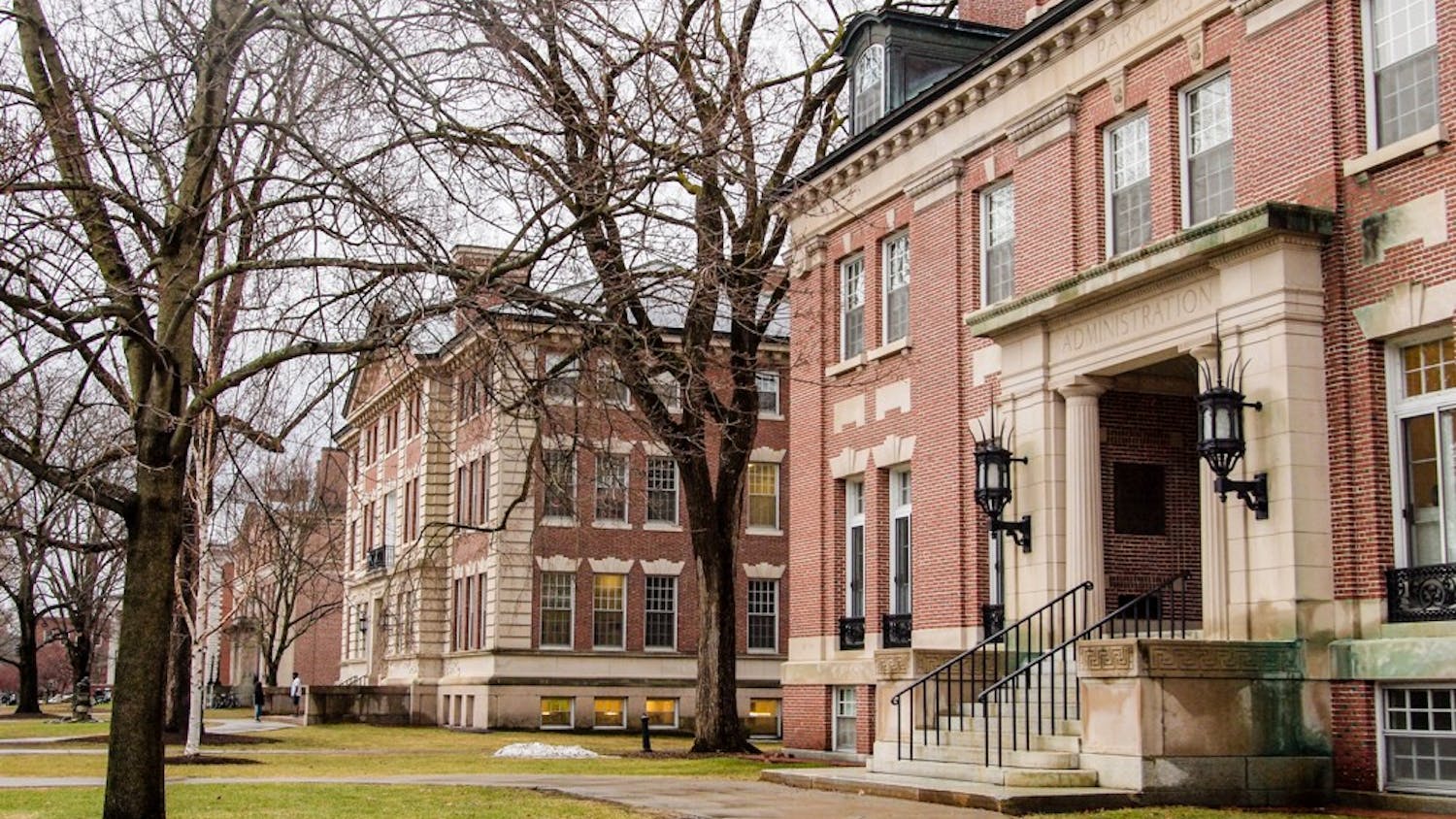With limited opportunities for social interaction, the demands of virtual classes and the ongoing instability posed by the pandemic, fall term saw students grappling with isolation and anxiety alongside their coursework. Now, as students gear up for a New Hampshire winter and another pandemic-era term, the College has taken recent steps to increase mental health support — yet concerns linger that resources may still be lacking.
In an effort to expand its mental health resources, the College has worked to hire a cohort of new counselors and reassess how it delivers services amid the pandemic. Additionally, the College’s fall restrictions on gatherings, which garnered criticism from parents and students alike, have been loosened as it seeks to increase opportunities for socialization in the winter.
In the fall, many students, particularly freshmen, struggled to make friends on campus and dealt with feelings of loneliness.
“Socially, it was not entirely the same,” said Sudharsan Balasubramani ’22, who lived on campus during the fall. “If I did see other people it would often be on a walk, or occasionally I’d go with my friends down to the river.”
In particular, the death by suicide of Beau DuBray ’24 at the end of fall term has fueled community dialogue on mental health and calls for improved mental health services, especially for students of color. DuBray was a member of the Cheyenne River Sioux Tribe in South Dakota.
In response to DuBray’s death, Dean of the College Kathryn Lively said that the College is working to encourage students to share if they have concerns about a friend or floormate as part of suicide prevention outreach.
“It’s not about not ratting them out,” she said. “… We’re really going to be doing as much outreach as we can because [DuBray’s death] was the one thing I had hoped I would never have to face as a dean, and I never want to face it again.”
Since August, the College has hired four new counselors and is currently searching for two additional counseling staff members — a case manager and an additional psychiatrist. Lively noted that the Counseling Center’s expansion is not a direct response to the pandemic, but rather a part of the efforts of the Campus Climate and Culture Initiative launched in January 2019.
The hiring has been a gradual process, with Yuling Lai and Renata Surette joining the College in September, Stefanie Jordão at the end of November and Paris Palmer at the end of December, according to Counseling Center director Heather Earle. She added that the center sought counselors who, in addition to other qualifications, could adequately support students of color.
Lively attributed the prolonged hiring process to the College’s high standards in hiring qualified candidates who reflect the makeup of the student body.
“We have a much more diverse student body than the general population, and so in order to find the right mix of counselors with the right set of backgrounds [and] the right experience, it sometimes takes longer to fill the lines,” she said.
Jordão will also take over as director for Dartmouth Cares, a suicide prevention training initiative run by the Counseling Center that aims to educate employees on how to talk to students who may be having suicidal thoughts and provide them with help. Lively said the College is in the process of ensuring that Native American students in particular receive suicide prevention training, should they want to participate.
Earle noted that the pandemic has required the Counseling Center to reassess how to provide “the same services in a very different way.”
“We're still open, we're still providing services [and] it's going to look different, but we still want you to know that we're here to support you in this really difficult time,” Earle said.
Earle added that when attempting to improve mental health on campus, seeking student input is key. She said that the Counseling Center has met with different student groups, like the Mental Health Student Union, to get feedback on ideas and initiatives.
Despite College efforts, Dartmouth faces unique challenges in supporting students, as the cold weather prohibits many outdoor activities. In response to concerns over isolation, students on campus this winter will be allowed to visit residential facilities other than their own — a reversal of fall term policies.
“We’re trying to open up more spaces so students won’t have to be in the room so much, and so isolated,” Lively said. She added that students should remember they are permitted to socialize in small groups as long as there is enough space to maintain adequate distancing measures.
Additionally, the College is currently working to install two ice skating rinks on the Green, plant a dozen outdoor fire pits across campus and groom the cross-country trails for skiing, Provost Joseph Helble noted in the Jan. 7 “Community Conversations” livestream. Students will also have access to the Dartmouth Skiway, and the College is working to make sleds and snow tubes available for student use.
Due to public safety guidelines, College-sponsored activities will be limited to 25 people and informal activities to nine, according to associate dean for student life Eric Ramsey.
Despite the College’s efforts, some students, like Balasubramani, are concerned that the winter will still pose an added mental health challenge.
“One of the biggest reasons the fall actually worked was because we had tents set up, and you could go and grab food there, you could see people [and] that’s where you got tested,” he said. “In the winter it’s going to be really hard to run a tent outside — especially in the cold — and you also won’t really get the chance to take walks.”
Balasubramani said that he decided against returning to campus again in the winter.
Although the Counseling Center did not directly influence the College’s efforts to increase social opportunities for the winter, Earle noted that Dartmouth Health Service director Mark Reed, who has been involved in charting the College’s response to the pandemic, is a psychiatrist and former director of the Counseling Center.
Meanwhile, Anne Katula ’24 said that she believes College administrators have been somewhat nearsighted in their understanding of COVID-19’s consequences on student mental health.
Katula said that while the College was in a difficult position, as protecting the physical health of students was at odds with promoting meaningful student connection, isolation was not the only consequence of the pandemic this fall. She noted that many students were facing additional challenges — like unstable home lives or financial hardship.
“The school made it clear they were giving us resources — they had counseling available and support groups, and things like that — but I would like them to start addressing some of the factors that are really in their control,” she said, citing issues like financial aid and academic accommodations.




